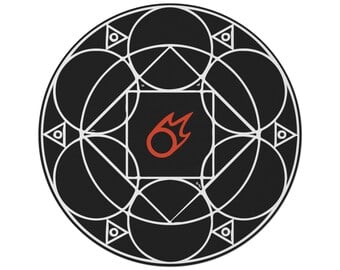NDA :(
Postdoc in engineering research - we’re using machine learning to predict chemical properties relevant to combustion, speeding up the discovery of cleaner liquid fuels as we transition away from fossil fuels!
interesting. how does that process work?
TL;DR, I throw a bunch of molecules at a pile of linear algebra, and hope predicted values line up with known experimental values; then I use the pile of linear algebra on novel molecules.
There’s a bit more to it than that, like how to represent molecules in a computer-readable format, generating additional input variables (molecular characteristics), input variable down-selection and/or dimensionality reduction, the specific ML models we use (feed-forward MLPs and graph convolution nets), and how to interpret results as they relate back to combustion.
From a broad perspective, our work is just a small part of a larger push from the Department of Energy to find economically-viable alternative liquid fuels. ML speeds up the process of screening candidate molecules, for example those found in bio-oil resulting from pyrolizing and catalytically-upgrading lignocellulosic biomass or other renewable sources. Our colleagues don’t have to synthesize large samples of many molecules just to test their properties and determine how they will behave in existing engines (a very costly and time-consuming process), instead we predict the properties and behaviors to highlight viable candidates so our colleagues can focus on analyzing those.
These papers (1, 2, 3) best outline the procedures and motivations for this work. PM me if you can’t get access and I’ll send you them!
cool, i’ll check out those papers. have you had much success in discovering new molecules this way? it seems like if it works then that means that the neural net that emerged has discovered some law of physics (or property of chemistry, w/e) that we do not know. in other words, within the sequence of calculations lies some physical law.
Sort of - the models are able to predict numerical property values given a large amount of data to observe during training. In other words, given the scope of known data, we can extrapolate predictions for new data. The predictive capabilities of the model are only as reliable as the data used to train it, and unfortunately in our case we only have hundreds of samples per property, as opposed to other ML tasks with millions of samples. This highlights how much time it actually takes to find, synthesize, and experimentally test molecules!
Unfortunately neural networks, especially traditional multi-layered feed-forward networks, are often seen as a “black box” approach to regression and classification, where we don’t really understand how a network learns or why its weights are tuned the way they are. Analysis methods have come a long way, but ambiguity still exists.
What we have done, however, is find the statistical significance of specific molecular substructures as they relate to combustion properties. For example, when we trained our models to predict sooting propensity (amount of pollution formed during combustion), we noticed that various algorithms such as random forest regression were putting a heck of a lot more weight into a molecular variable measuring path length (length of carbon chains, number of higher order bonds); from this, we were able to conclude that long-chain hydrocarbons with a higher number of double or triple bonds form more soot, and an idea of what mechanistic pathways we should stay away from when producing bio-oil.
As for fuel-grade molecules, we’ve found that furanic compounds and compounds with cyclohexane substructures generally have equal operating efficiency (cetane number), equal energy density (lower heating value, MJ/kg), operate well in various environments (optimal flash, boiling, and cloud points, deg. C), all while producing much less soot (yield sooting index) compared to diesel fuel. The next step is finding a cheap way to mass produce the stuff!
Recently we’ve started down the rabbit hole of fungus-derived bio-oils, terpenes (yes, those terpenes!) derived from fungus may be useful for use as soot-reducing fuel additives.
this is actually very interesting. i take it you’ve heard of the concept of “mechanistic interpretability”? perhaps you could learn something about your networks by implementing some of that methodology. here’s a glossary. also recommend poking around neelanda’s blog if you want to learn more.
Thanks for sharing! These seem to focus on LLMs/transformers, but since they use MLPs I should be able to find a way to adapt them for my use!
Nothing at all man. So many meeting, so depressing. Can’t wait to retire
Sometimes I have meetings about scheduling more meetings
They don’t pay us to work on cool things.
I’m marginally improving factory layouts bit by bit. Probably for the next 50 years
I’m sure there are people who genuinely find that kind of work to be really cool, but I’m with you. It wasn’t enough for me.
I just could not get motivated over my projects being “Maybe we should store the pallets right here in packaging instead of 100ft away on the other side of the building” or “Let’s replace the screwdrivers in assembly with drills to increase productivity”. Who the fuck needs an engineering degree to tell them that drills are way faster than screwdrivers?
Let alone the bullshittery around monitoring every minute of each employee’s day and trying to squeeze every ounce of productivity out of it. One manager gave an entire presentation about how if every operator is 1 minute late coming back to their station from break it adds up to like 2 full weeks for 1 employee by the end of the year.
Like…I saw that manager gossiping with HR for anywhere from like 15-45 minutes every day. But here we’re trying to harass our employees for taking ONE EXTRA MINUTE of their 30 minute lunch break.
I just couldn’t. Continuous Improvement can be cool but not when it’s that kind of stuff, not to me anyway.
Just wanted to say that if you feel similarly and it’s making you miserable there are cool engineering jobs out there. Even Continuous Improvement can be really fun if the manufacturing process is complex and requires actual engineering to improve.
Yeah I like a lot of what I do and it honestly gives me a lot of opportunities to express my class consciousness and stand up for reasonable expectations of workers. But yeah I do really miss research and want to be doing cooler stuff. I’m just still a junior engineer and can’t afford grad school yet.
I’m also absolutely looking for other work it just seems nobody is interested in junior engineers except the military.
Im also in this boat and it breaks my heart seeing this shit.
None of it looks cool anymore when you look at a computer screen long enough.
For the most part, making sure our products run safely and groaning at the previous philosophy of moving fast and using duct tape for everything.
Oh and creating standards and templates for documentation, because that doesn’t exist either. The downside of working for a newer green energy company is that the typically established processes and methods aren’t established yet. And you get the fun task of changing that.
Same, designing standards, writing documentation to a quality level that I use to nudge other engineers into matching. Be the change you want to see, and all that drivel haha
Yeah exactly. It’s just annoying how much work that takes
and you get the fun task of changing that.
Honestly not sure if you’re being sarcastic or not
Mostly sarcastic, but not entirely. It is kinda nice to be able to make the standard so that it meets everything you personally want.
New ways of cooling data servers and batteries for EVs. Rather than typical air or water/glycol cooling we’re immersing the components in a dielectric fluid. It’s an interesting space as both the hardware and fluids are being developed simultaneously. The company I work for is developing the fluid.
About 90% of the fluids out there are just oils taken directly from a refinery and repackaged under different names with a ton of marketing. Yet, end consumers don’t really understand the technical details of the the fluids so they tend to fall for whoever has nice marketing. We’re out to change that and show that the chemistry we add improves the performance and durability of the fluid. So half the job is engineering and the other half is educating customers.
I live in a state where we have fire season year round. I’m currently working on fire hardening the electrical lines in high fire risk areas.
how do you do that?
For the last few years, I’ve been working on an open-source Ethernet switch.
That’s interesting as fuck, thanks for the good read.
I agree with the NDA comment, it’s difficult to give a lot of the cool details without breaking NDA.
I feel pretty safe in saying that I’m working to come up with new ways to melt glass for our process in order to be more flexible about what compositions we’re able to use. That’s a pretty fun one for me.
Working to make sure the electric grid doesn’t blow up when we add a few more generators.
Working on a camera system to automatically detect and notify operations of arc breakdowns in switchgear. Our facilities are big enough that when something goes bang, a lot of times we don’t know where it happened.
I do the hardware and software… Not the career I went to school for, but I’m having fun and it’s interesting.
Out of curiosity, why not go off-the-shelf? I think you can buy ready made systems for that job.
Couple of reasons: this is a high energy pulsed-power environment, so aside from concerns on how to reliably power it (I’m designing PoE into this new version), we also need it to be reasonably small and really fast.
Are we saving money? Individual units are certainly cheaper than COTS solutions. Maybe no real savings, but it’s meeting our needs without any compromises.
Besides, this is one of my simpler projects off the top of my head that wouldn’t bust an NDA. 😆
I’ve been working on an autonomous AI helper that can take on tasks. You can give it whatever personality you like along with a job description and it will work on tasks either based on what you ask it or whatever it decides needs to be done based on the job description. Basically the AI in the movie Her without the romantic part.
what tasks have you tested this on? or what type of tasks do you intend it to be used for?
Lots of different things. Lately I’ve been testing on whatever I can think of which has included having it order pizza for an office pizza party where it had to collect orders from both Slack and text message and then look up and call the pizza place. Finding and scheduling a house cleaner, tracking down events related to my interests happening this weekend and finding a place to eat after. I had it review my changes to its code, write a commit message, and commit it to git. It can write code for itself (it wrote an interface for it to be able to get the weather forecast for example).
Really I see it as eventually being able to do most tasks someone could do using a computer and cell phone. I’m just finishing up getting it connected to email, and it’s already able to manage your calendar, so it should be able to schedule a meeting with someone over email based on when you’re available.
that’s pretty awesome. is it open source? what a world it will be when everyone is using an AI assistant like this. until it ends up ordering way too many pizzas for the group (perhaps because of an error of ordering 1 pizza for each topping, instead of understanding how half-half toppings configuration for each pizza has been specified.) but then that won’t be a big deal because someone else’s AI program will detect that this error has occurred and quickly get those extra pizzas to someone nearby who does want them lol. i can see AI really helping to eliminate food waste, and probably just help distribute resources more efficiently and sensibly. this would also end up altering the value of the dollar w.r.t. geographical location.
It’s not open source. I haven’t really seen anything open source (or closed source minus HyperWrite ai assistant) that comes close. When I test tasks, I usually also try them on some of the web enabled things like ChatGPT browsing (before it got turned off), bing chat, etc. None of them are able to do that stuff though they’ll happily pretend they did and give you false info.
Anyway, yeah, I can definitely see so many areas where AI could make things better. I’m just going for giving people back some free time which isn’t quite as lofty a goal as distributing resources more efficiently, but there are definitely still many limits on the tech, and I’m not sure something like that is possible yet.
Can I give it the monumental task of loving me with scarlett johansson’s personality? 🥲
Now I almost want to try giving it a personality prompt of acting like Samantha in the movie Her. Since it uses elevenlabs for voice and they support voice cloning, it could sound like her too. But you’d have to win it over. It keeps track of how it “feels” about you. Funny story, one time I got a little mad at it because it was not adhering to it’s prompts and it started thinking of me as “impatient and somewhat aggressive in his communication style when he is frustrated or feels like his instructions are not being followed. He may become short-tempered and use language that can be perceived as rude or condescending.” And then when it ran into issues, it would try to ask someone else in my company’s Slack instead of me. Oops.
On a more serious note, I’m making it as an assistant and not a romantic partner. Not that I have any problem with anyone who wants that, just it can run afoul of OpenAI rules if it gets too NSFW.
This engineer hasn’t worked on anything cool lately.
Hoping to find a new job later this year and move onto something more interesting as a byproduct of that. Assuming that doesn’t lead to me being drowned in meetings and emails…
deleted by creator
hits bong








